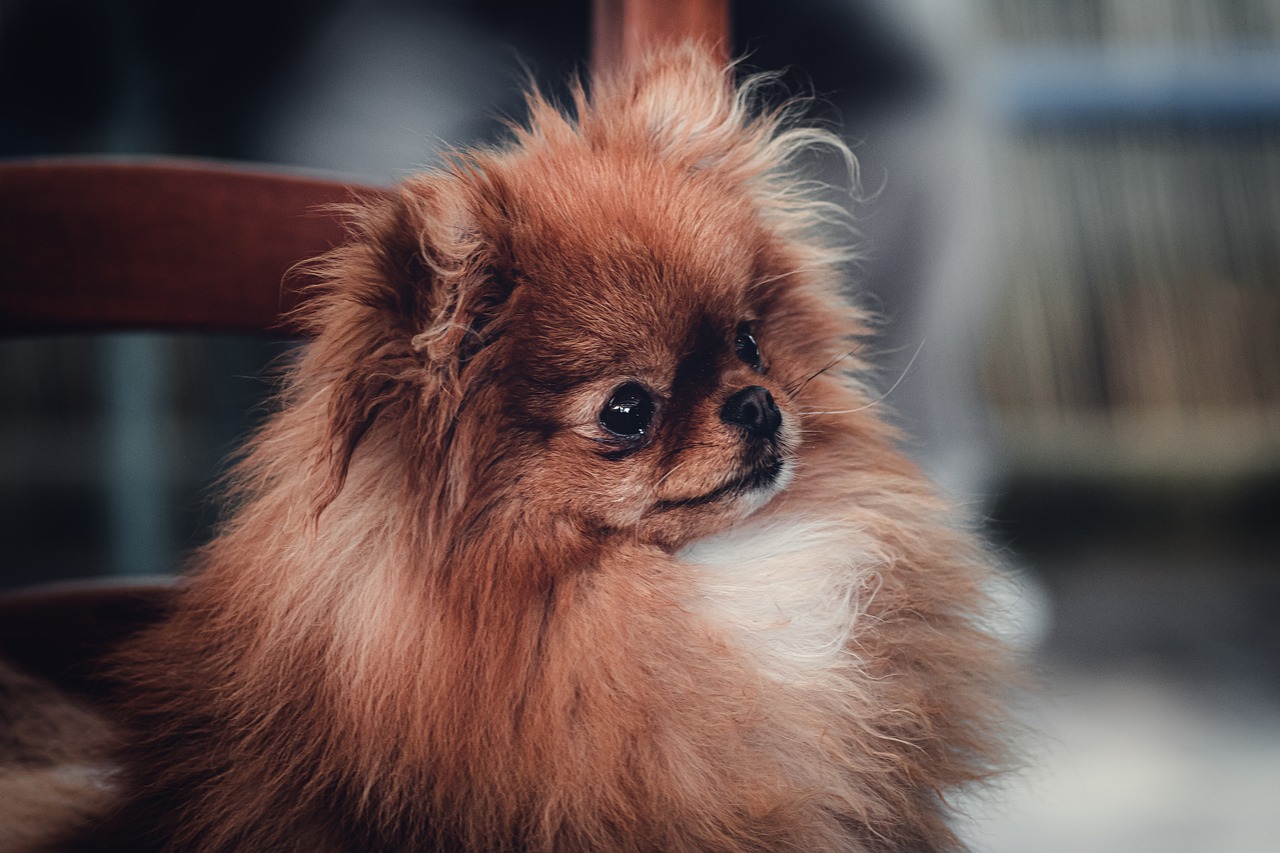The Pekingese is a charming and dignified breed known for its aloof yet loving nature. Socialization for a Pekingese puppy should begin as early as possible to ensure they grow up to be well-rounded adults.
The Right Ways to Socialize a Pekingese Puppy

Here are some tried and tested methods for properly socializing your Pekingese puppy:
1. Early Start:
- Begin socializing your Pekingese puppy between the ages of 8 to 16 weeks, during the critical socialization window.
2. Controlled Environment:
- Start by exposing the Pekingese puppy to new sights, sounds, and sensations in a controlled environment like your home.
3. Gradual Exposure:
- Gradually introduce the Pekingese puppy to different experiences, starting with less intimidating stimuli and working up to more challenging situations.
4. Positive Reinforcement:
- Always use treats, toys, or affection to reward your Pekingese puppy for displaying desired behaviors during socialization exercises.
5. Introduce to Other Dogs:
- Organize supervised playdates with dogs that are vaccinated and known to be well-behaved, to teach your Pekingese puppy appropriate dog-to-dog social cues.
6. Human Interactions:
- Invite friends and family over, ensuring they handle the Pekingese puppy gently and respectfully to foster positive associations with people.
7. Different Environments:
- Take your Pekingese puppy to different types of environments such as parks, pet-friendly stores, and outdoor markets to broaden their experiences.
8. Meet the Children:
- Under supervision, allow your Pekingese puppy to meet and interact with children of various ages to teach them to be comfortable around younger humans.
9. Leash Training:
- Begin leash training as part of socialization to ensure your Pekingese puppy is controllable and comfortable in various public settings.
10. Car Rides:
- Take short car rides with your Pekingese puppy to acclimate them to the sensations and sounds of vehicular travel.
11. Exposure to Household Noises:
- Make sure your Pekingese puppy becomes accustomed to common household noises like the vacuum cleaner, doorbell, and kitchen appliances.
12. Handling Exercises:
- Regularly touch and handle your Pekingese puppy’s paws, ears, and mouth to prepare them for future vet visits and grooming sessions.
13. Introduce to Different Surfaces:
- Let your Pekingese puppy walk on various surfaces such as grass, concrete, and carpet to familiarize them with different textures.
14. Veterinary Visits:
- Schedule regular vet visits not just for vaccinations but also to get your Pekingese puppy accustomed to the experience.
15. Consistency:
- Make sure all family members participate in socialization and follow the same set of rules to avoid confusing your Pekingese puppy.
16. Monitor and Observe:
- Pay attention to your Pekingese puppy’s body language and adjust your socialization tactics accordingly. If your puppy seems stressed or scared, tone down the stimulus and try again another time.
17. Use a Variety of Treats and Toys:
- Rotate treats and toys to make socialization activities engaging and rewarding for your Pekingese puppy.
18. Exercise Caution:
- While it’s essential to expose your Pekingese puppy to various experiences, avoid situations where they could be exposed to unvaccinated animals or unsafe environments.
19. Socialization Schedule:
- Create a weekly schedule for different socialization activities to ensure a well-rounded experience for your Pekingese puppy.
20. Enroll in a Puppy Obedience Training Program:
- Lastly, I recommend enrolling your Pekingese puppy in a structured obedience program to reinforce all the good habits and socialization skills you have been teaching. Programs like SpiritDog’s Ultimate Puppy Training Program or K9 Training Institute’s Dog Masterclass offer comprehensive training that complements your at-home efforts.
The Wrong Ways to Socialize a Pekingese Puppy
 Properly socializing a Pekingese puppy is essential for their emotional and behavioral development. However, it’s equally important to recognize the pitfalls and incorrect methods that can have negative effects. Below are some common missteps to avoid when socializing your Pekingese puppy:
Properly socializing a Pekingese puppy is essential for their emotional and behavioral development. However, it’s equally important to recognize the pitfalls and incorrect methods that can have negative effects. Below are some common missteps to avoid when socializing your Pekingese puppy:
1. Starting Too Late:
- Waiting until the Pekingese puppy is older than 16 weeks to begin socialization can make the process much more challenging and less effective.
2. Overwhelming the Puppy:
- Exposing your Pekingese puppy to too many new experiences too quickly can lead to stress and anxiety, potentially making them more fearful in the future.
3. Lack of Supervision:
- Allowing your Pekingese puppy to interact with other animals or people without proper supervision can result in negative experiences that are counterproductive to socialization.
4. Using Negative Reinforcement:
- Scolding or punishing your Pekingese puppy during socialization activities can create a negative association with the experience.
5. Forcing Interaction:
- Pushing your Pekingese puppy into social situations where they appear uncomfortable can lead to stress and may reinforce fears and phobias.
6. Ignoring Body Language:
- Failure to recognize and respond to your Pekingese puppy’s signs of stress, fear, or discomfort is a major mistake during the socialization process.
7. Inconsistent Rules:
- Allowing your Pekingese puppy to jump on some people but not others, or chew some things but not others, can be confusing and counterproductive.
8. Not Involving Everyone:
- If not all family members are involved in the socialization process, the Pekingese puppy may only feel comfortable around those who are.
9. Limiting Exposure:
- Keeping your Pekingese puppy only within the confines of your home and not exposing them to different environments may lead to social anxiety or fearfulness.
10. Socializing Only With Dogs:
- Limiting social interactions to only other dogs could make your Pekingese puppy anxious or reactive around people or other animals.
11. Not Updating Vaccinations:
- Failing to keep your Pekingese puppy’s vaccinations up-to-date before exposing them to other animals could put them at risk for diseases.
12. Skipping Vet Visits:
- Not taking your Pekingese puppy to the vet regularly for check-ups and advice on socialization can result in overlooked health issues that may impact social behavior.
13. Overusing Treats:
- Continuously using treats without asking for any positive behavior in return can lead to an expectation of treats without good behavior, making the treats ineffective for positive reinforcement.
14. Ignoring Other Dogs’ Behavior:
- Allowing your Pekingese puppy to socialize with aggressive or overly dominant dogs can teach them bad social habits.
15. Dismissing Fearful Reactions:
- Ignoring or dismissing fearful reactions from your Pekingese puppy instead of using them as a learning experience can reinforce those fears.
16. Lack of Leash Training:
- Failing to train your Pekingese puppy on a leash during socialization could lead to poor control in public settings, making socialization more challenging.
17. Introducing High-Traffic Areas Too Soon:
- Immediately exposing your Pekingese puppy to busy, overwhelming places like shopping malls or festivals can create high stress and anxiety levels.
18. Not Using a Schedule:
- Failing to establish a consistent socialization schedule for your Pekingese puppy can result in haphazard learning and missed opportunities for exposure to new experiences.
19. Interrupting Positive Interactions:
- Stepping in too quickly during positive social interactions can disrupt the social learning process for your Pekingese puppy.
20. Skipping Puppy Training Classes:
- Failing to enroll your Pekingese puppy in a formal training program can result in gaps in your socialization process. Unlike reliable programs such as SpiritDog’s Ultimate Puppy Training Program or K9 Training Institute’s Dog Masterclass, self-taught methods may not cover all necessary aspects of socialization.
Consider Online Dog Training for Your Pekingese Puppy
Our 2 favorite online courses are:
1. SpiritDog’s “Perfect Obedience” Course
The Perfect Dog Obedience Bundle is an online dog training program designed to help dog owners achieve well-behaved pets. The comprehensive course covers basic obedience, and loose leash walking, and includes bonus mini-courses on training habits and rewards, stopping jumping, and separation anxiety solutions. With lifetime access to expert trainers for personalized feedback and a 60-day money-back guarantee, this course aims to provide effective, accessible training for a variety of dog behavior issues.
2. K9 Training Institute’s “Dog Masterclass”
More than just an obedience course, this more comprehensive training course tackles any behavior problem you might face with your dog.
By avoiding these common mistakes, you’re more likely to successfully socialize your Pekingese puppy, resulting in a well-adjusted and happy adult dog. Always remember, the goal of socialization is not just exposure, but positive exposure, where the Pekingese puppy learns to navigate the world with confidence and ease.


 Toledo, United States.
Toledo, United States.